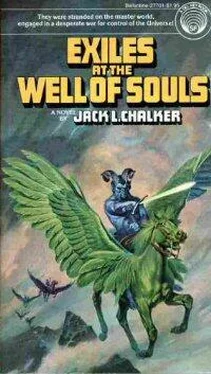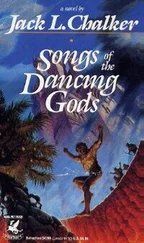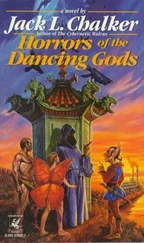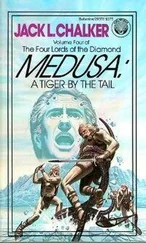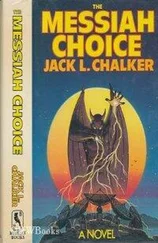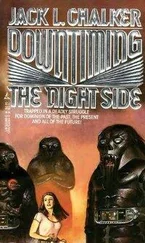The trail was a lot more obvious on the map than it was in reality; it wasn’t well maintained, some of the shelters were in disrepair and obviously had been so for years, and the trail often vanished without visible landmarks, causing the Agitar to have to probe gingerly ahead with their tasts. Their party of fourteen—twelve Agitar, he, and his not-so-loyal wife, Burodir—was now nine, still including Burodir, unfortunately.
But the landmarks were reasonably clear; the terrain was not bad, most of the climbing having been at the beginning, and as many times as the trail had vanished it had also been crystal clear, as if tramped down by the soles of many feet.
This had worried him at first, until he was reminded by the Agitar that this was, after all, somebody’s hex, and somebody had to live in it.
In a way, that thought was the most disturbing. They had neither seen nor heard a native in all this time, in all this way. It made no sense at all that there shouldn’t be some creatures somewhere along the way, except the occasional panic-inducing arctic hare, or whatever it was, and a few small weasellike creatures.
And yet—somehow, they’d made it. Somehow they’d kept to this trail. Somehow they were going all the way. He was, anyway. What the others did was up to them.
He studied the maps and aerial photos from the Cebu scouts. He knew pretty much where he was, although without the prescouting he would have been lost and dead now, he had to admit. The inner ring of mountains, slightly taller than the outer but hidden before now, was clearly ahead. And, just on the other side of that big, glacier-carved peak over there, and over a bit, was a U-shaped valley with a very important large object lying askew on a ledge.
They would not make it today, that was for sure. But sometime tomorrow afternoon, certainly, if nothing else happened.
Along the Intermountain Trail
“Ifrit! My field glasses!” Ben Yulin commanded. The cow reached into the pack of her cowife and quickly extracted them.
“Here, Master,” she said eagerly, handing them to him. He took them without a word and put them to his eyes.
They were not merely binoculars; they had additional special lenses that helped his nearsightedness. With the already ground prescription snow goggles, they brought anything within their range into sharp, clear focus.
“Trouble?” growled a low voice next to him.
He looked away and over at the thing. It looked like a walking hairy bush, about as tall as he, with no apparent eyes, ears, or other organs. In actuality, it was not a single creature, but a colony of thirty-six Lamotien, adapted to the cold weather and the snow.
“That shack up there,” he pointed suspiciously ahead. “Doesn’t look right, somehow. I don’t want any more tricks like that fake trail. We lost two good cows there.” Neither his, he failed to add.
“We lost thirty brothers, don’t forget!” snapped the Lamotien. “We agree it looks strange. What should be done about it?”
Yulin thought a minute, trying to find a good solution without risking his noble neck or his possessions. “Why don’t a couple of you go on up? Turn white or something and take a look around.”
The Lamotien considered it. “Two each, we think. Arctic hares.” The creature seemed to come apart all of a sudden; breaking into small, equal-sized fuzzy masses. Two of the things came off one side and jumped to the snow; two others from the left. Yulin watched, fascinated as always, as the rest of the shaggy creature reformed and readjusted. It looked slightly thinner, but otherwise the same.
Now the two Lamotien in the snow ran together, seemed to blend into one big shaggy lump. The other pair did the same. Slowly, as if there were unseen puppeteer’s hands under the shaggy mops, there was a poking here, a wrinkle there, a bend here, a growth there.
Two arctic hares were there in less than two minutes. They scampered off naturally in the direction of the cabin. The rest waited; only the colony leader had a translator, so they’d have to reform before he knew the story. They didn’t have vocal communication, that was for sure. He wondered if they talked when they melded, became one being with common mind, or what. He’d asked, but the Lamotien told him not to worry about it, the concept was beyond him anyway.
The hares returned in a little more than ten minutes, disconnected, jumped back into the hairy lump, and melded again. The shape was silent for a minute, talking to the scouts or maybe absorbing the scouts’ brief memories.
Finally, it said, “The place is deserted. You’re right about it being funny, though. Lots of packs and supplies still there. Somebody was there not long ago, and left—not of their own will, we’ll wager. Too much stuff left.”
That had him worried. “Think they were the centaurs we’ve been following?”
“Probably,” the Lamotien agreed. “But whoever they are, they’re gone now.”
“Tracks?”
The Lamotien paused. “That’s the funny part. There aren’t any. We see their tracks, lots of snow disturbances where they unpacked, and all that. But no other tracks for hundreds of meters in any direction. None.”
“Well, they didn’t come back this way,” Yulin said, worried now. “So where did they go?”
They all looked around at the silent mountains.
“And with whom?” responded the Lamotien.
Another Part of the Field
It seemed that they had walked forever; they had frequent rests—their captors seeming to appreciate their need for more oxygen than the atmosphere now provided—but no conversation. A few grunts and a lot of gestures, none of which the translators would handle, but nothing else.
They were off any trails the Dillians knew, though. Trails so invisible at times that the great Gedemondans leading the way in sometimes crazy patterns seemed to be lost themselves. They weren’t, though; they simply knew, somehow, everything that was under the snow.
Doma, carrying both Mavra and Renard, was being led by Tael with the two Lata on her back. In front were four of the giant snow creatures; behind, four more. Others were visible now, here and there, sometimes a large number, sometimes one or two crossing paths.
Mavra still wasn’t sure what they were. They didn’t really remind her of anything, yet they somehow reminded her of everything. All snow white, not even the dirtiness that such thick hair usually displays so well. Tall—Tael was well over two meters, and they were almost a head taller than she—and very slender. Humanoid, yet their faces appeared doglike, snow white with long, very thin snouts and black button noses, their eyes set back, large but very human-looking, and an intense pale blue. Their hands and feet formed huge circular pads when closed, the palms and soles of a tough, white, pawlike material. But when they spread their fingers, their long, thin fingers, they had three and a thumb—although their hands seemed to be almost without bones. They could bend them any which way and flex them and the whole hand in any direction, as if they were made of some kind of putty. Fingers and toes had long, pink claws, the only nonwhite part of them other than the nose. Even the insides of their saucerlike ears were white.
They filled in the tracks by the simplest method imaginable. They wore flowing white capes of some animal fur, and it dragged behind them as they walked, the light top powder filling in behind them. They didn’t sink down into the snow nearly as heavily as they should have; the padlike feet acted almost like snowshoes.
Tracks weren’t a problem here; they knew they were being taken into the mainstream of Gedemondan life, whatever that was. This was the part hidden away from all comers, the part they never let you see.
Читать дальше
